If you were link building in the early 2000s, you may remember submitting one or more websites to a relevant directory with a decent PageRank to acquire an easy backlink.
But just like many link building tactics of the past, when it became too easy, Google began to frown upon those links.
The question now, is: are web directories still a valuable source of links for webmasters in 2022?
Where Do Web Directories Stand Today?
Today, Google’s algorithm is a lot more complex.
While links are still one of the top-ranking signals, Google no longer views all links equally.
Links from a web directory listing are a lot less influential than a super relevant contextual link from a high-authority site in your niche.
That’s not to say web directories are completely meaningless.
According to Moz research, web directories and local citations still appear to be a small ranking factor – especially for local businesses.
However, Google’s John Mueller himself has said that directory links “generally” don’t help with SEO.
What’s a marketer to do?
Move beyond viewing web directories as a source for links.
Instead, view directories as a source of traffic and trust.
Any business with a local presence needs to maintain their local citations with a consistent NAP, but web directories won’t help with your SEO much beyond that.
The real returns will be from the credibility and traffic they drive to your business site.
As you begin your search for web directories, keep those two criteria in mind.
Consider these questions before you start filling out your listing:
- Is this a reputable site? Put another way: If a customer saw me on this site, would they view my business as more – or less – legitimate?
- Is my target audience likely to visit this site? If not, it’s probably not worth listing your business.
Now, let’s get into what you came here for the web directories that are still relevant today.
Web Directories That Still Have Value Today
In an effort to remain relevant, many web directories of yore have transitioned beyond basic listings to detailed review sites.
Many of the sites I’ve listed below reflect this trend.
I could have included many more on this list, like Jasmine Directory, Brownbook, and Bloggapedia, but based on their current traffic numbers (or lack thereof), I’m not sure they’re worth the effort anymore.
Instead, I’ve chosen to focus on only those sites that are more than a mere citation opportunity for your business.
These are all web directories with real traffic numbers that could translate into real value for your website.
Note: Unless otherwise noted, all traffic estimates were taken from SimilarWeb.com in January 2022. Also, with the exception of BOTW, Yahoo, and BBB, all of these web directories provide free listings.
Useful Web Directories For Any Kind Of Website
1. BOTW
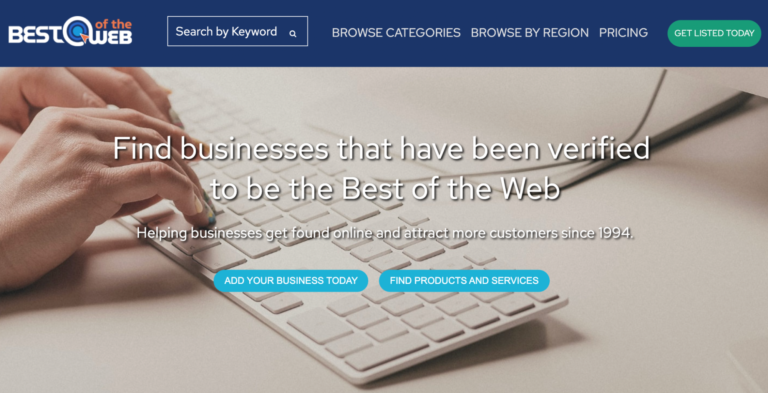 Screenshot from Best of the Web, January 2022
Screenshot from Best of the Web, January 2022Since 1994, Best of the Web (or BOTW for short) is still a trusted online directory used by more than 16 million businesses.
It receives 60,000-70,000 visits per month.
There’s also blogs.botw.org for blogs and local.botw.org for local businesses.
A lifetime listing (with a link to your website) costs $297.
2. AboutUs
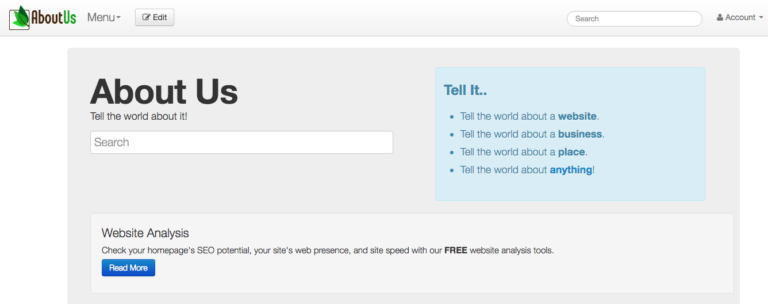 Screenshot from AboutUs, January 2022
Screenshot from AboutUs, January 2022Originally formed as a business domain directory, AboutUs now allows all kinds of websites to be submitted and discussed.
The site receives 100,000 monthly visitors, on average.
3. Spoke.com
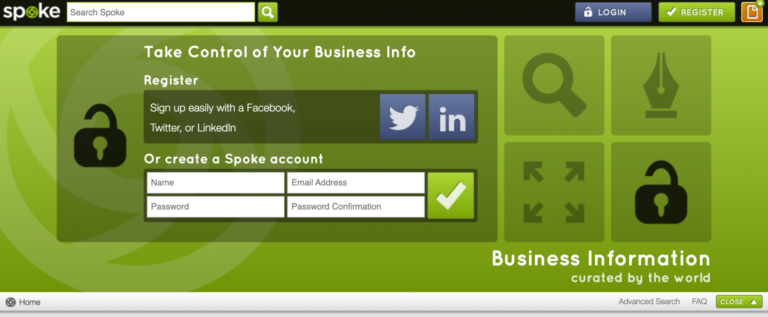 Screenshot from Spoke, January 2022
Screenshot from Spoke, January 2022Spoke is an online community for finding and discussing business people, companies, news, and more.
On Spoke, you can add a web listing for a business or a person.
As of this writing, 1.4 million companies and 5 million people are listed on the site.
It receives over 100,000 monthly visitors.
For Blogs Only: One Web Directory To Rule Them All
4. Blogarama
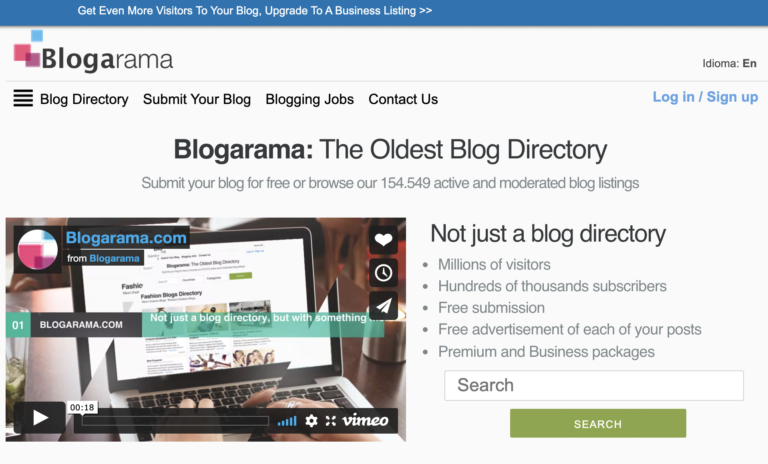 Screenshot from Blogarama, January 2022
Screenshot from Blogarama, January 2022Blogarama features over 154,000 blog listings that are actively updated by site admins.
Of the (very) many blog sites I added my own personal blog to, this is the only one that continues to send me consistent traffic.
Plug in your RSS feed and Blogarama auto-updates your listing with your latest posts.
The site receives over 150,000 visitors monthly.
Relevant Web Directories For Local Businesses
5. Google Business Profile
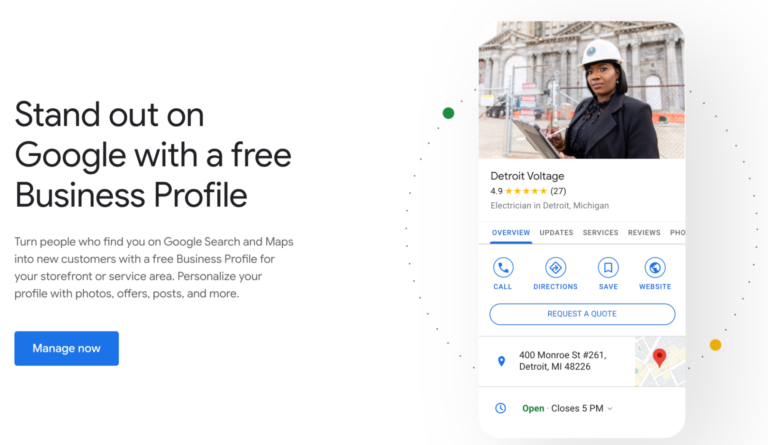 Screenshot from Google Business Profile, January 2022
Screenshot from Google Business Profile, January 2022If you’re an SEO professional, you’re already familiar with the vast benefits that make listing your business on Google not just a good idea, but a basic requirement of online marketing.
In late 2021, Google My Business rebranded to Google Business Profile.
Having a Google Business Profile continues to climb in relevance as a local search ranking factor.
Plus, Google is the world’s largest search engine.
Having an optimized Google Business Profile is the best way to make sure you show up for the majority of internet users seeking what your business offers.
6. Bing Places
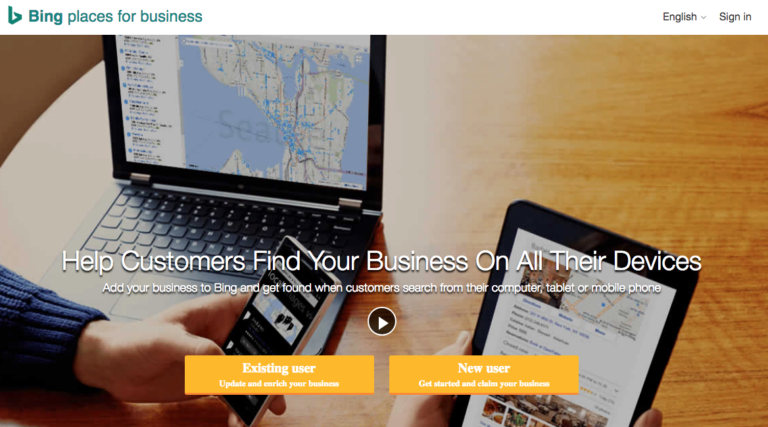 Screenshot from Bing Places, January 2022
Screenshot from Bing Places, January 2022Next up is Bing Places, the Google Business Profile equivalent for the world’s second most popular search engine.
While only about 6% of the world uses Bing as their search engine, it’s important to remember that it’s the default search engine for Internet Explorer and Edge, and Microsoft still dominates the desktop computer market.
Make sure you reach those PC users by adding your business to Bing Places.
7. Facebook
 Screenshot from Meta for Business, January 2022
Screenshot from Meta for Business, January 2022Yes, we traditionally think of Facebook (er, Meta) as a social media network.
However, Facebook Pages are indexable in Google Search.
Having an official Facebook Page offers your business, blog, or online publication an additional way to connect and drive discussion with your audience – especially as Facebook inches ever closer to 3 billion monthly users.
Plus, two in three Facebook users visit a Page for a local business once a week.
8. Yelp
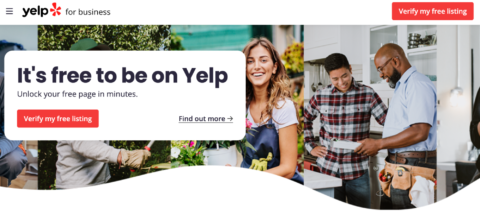 Screenshot from Yelp, January 2022
Screenshot from Yelp, January 2022Yelp still reigns supreme as the review site for local businesses.
If you want customers to find your business, you need to be on Yelp – and you need to be getting positive reviews.
The site currently has 224 million reviews and 90 million monthly users, 97% of whom go on to make a purchase after using Yelp.
9. Foursquare
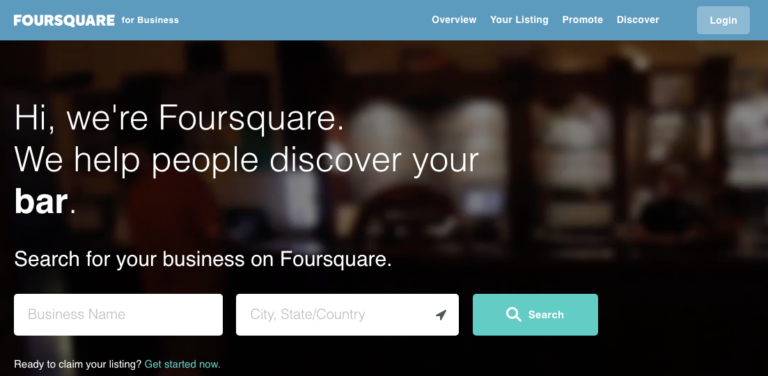 Screenshot from Foursquare, January 2022
Screenshot from Foursquare, January 2022Foursquare is nowhere near as popular as Yelp, but it does provide listings for all kinds of local businesses.
The site is visited by 24 million people monthly, and 93% of local storefronts represent 2 million of the businesses that are already listed on Foursquare.
10. Yellow Pages
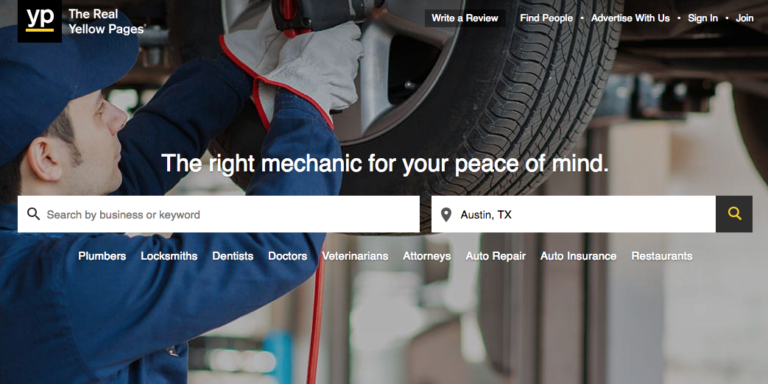 Screenshot from The Real Yellow Pages, January 2022
Screenshot from The Real Yellow Pages, January 2022Yes, this is that Yellow Pages.
If you’re wondering whatever happened to the company that used to drop off yellow tomes on your front doorstep, they went online.
Claiming your business is free, although you can expect to be pestered to opt into their advertising options upon signing up.
Beyond a business listing, YP stays relevant by offering coupons, providing listings for a large variety of industries, and regularly posting blog content to drive internal link equity back toward their directory pages.
The site averages 17 million monthly visitors.
11. Chamber Of Commerce
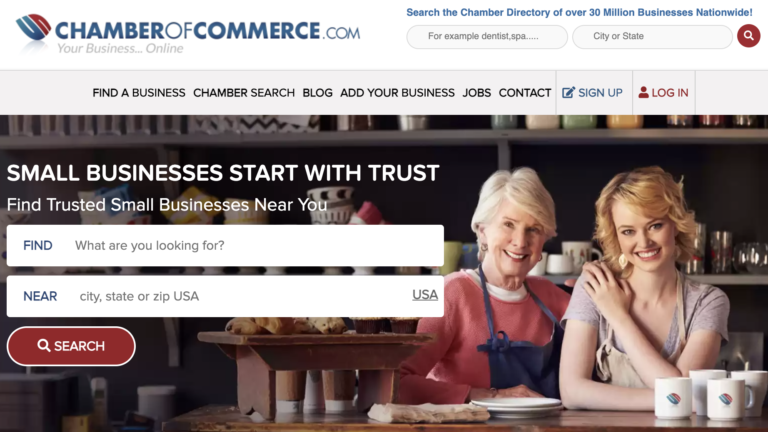 Screenshot from Chamber of Commerce, January 2022
Screenshot from Chamber of Commerce, January 2022ChamberOfCommerce.com is the online version of your local Chamber of Commerce (which you should also aim to get listed in, by the way).
Around since 1998, this website aims to be the most robust listing of small businesses online.
It also serves a small business owner resource center, through their free listings, paid ad options, and educational articles.
The site lists more than 30 million businesses and monthly traffic numbers are over 780,000.
12. HotFrog
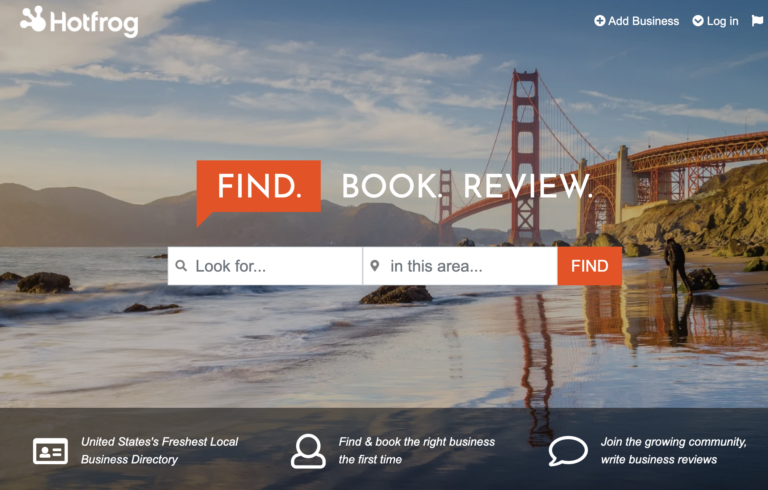 Screenshot from Hotfrog, January 2022
Screenshot from Hotfrog, January 2022Each month, around 80,000 people search the 69 million businesses listed on HotFrog.
Businesses, sole practitioners, and anyone doing business with a physical address can add their listing for free.
13. Superpages
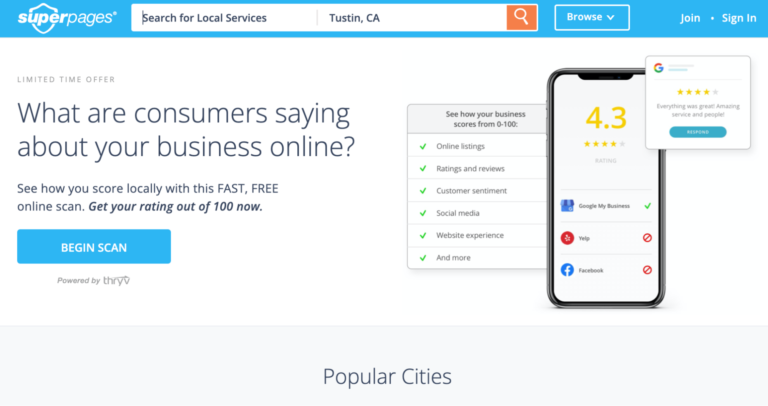 Screenshot from Superpages, January 2022
Screenshot from Superpages, January 2022Superpages is a local business directory.
Businesses can add basic information, reviews, photos coupons, and, of course, a link to their website.
The web directory sees an average of 500,000 to 600,000 monthly visitors.
14. MerchantCircle
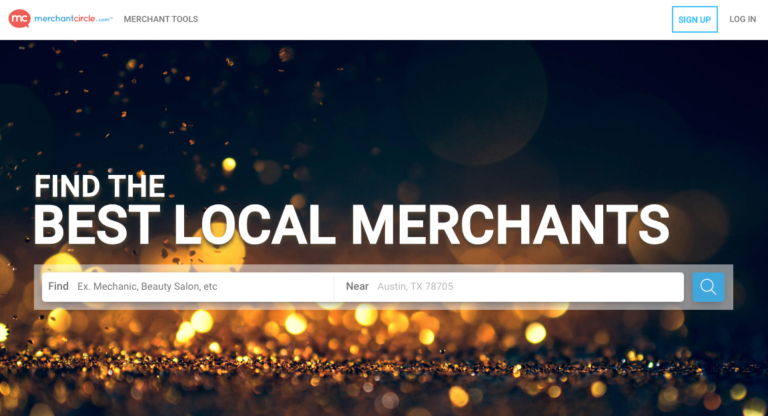 Screenshot from MerchantCircle, January 2022
Screenshot from MerchantCircle, January 2022MerchantCircle’s premise is simple: “Find the best local merchants.”
The site includes listings for all kings of merchants and contractors, ranging from attorneys and notaries to realtors and agencies.
Over 100 million consumers visited the site last year to search its listings of 2 million businesses.
The site gets around 1.5 million monthly visits.
15. Better Business Bureau
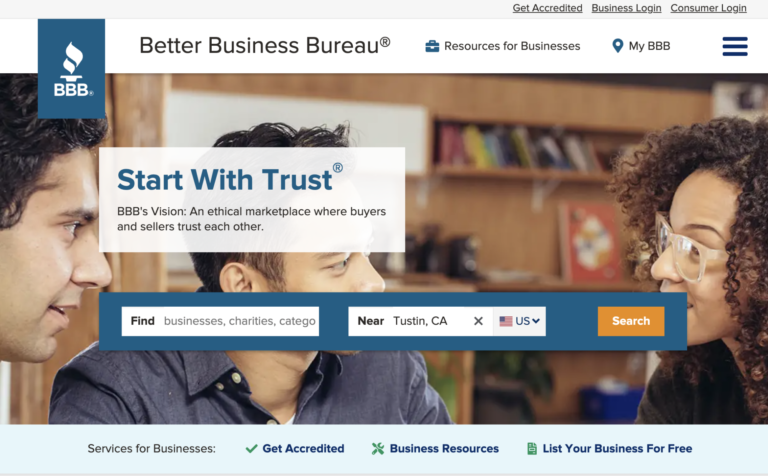 Screenshot from Better Business Bureau, January 2022
Screenshot from Better Business Bureau, January 2022Having a listing with the Better Business Bureau (BBB) and being able to reference that accreditation on your own site remains a major trust signal to today’s consumers.
You’ll need to apply for accreditation, but once you’re approved, customers can visit the site to verify you’re a business they can trust.
BBB is one of the top 300 websites in the U.S. and top 1,200 globally.
Monthly traffic numbers range from 12 to 13 million. It’s worth having a listing here.
16. B2B Yellow Pages
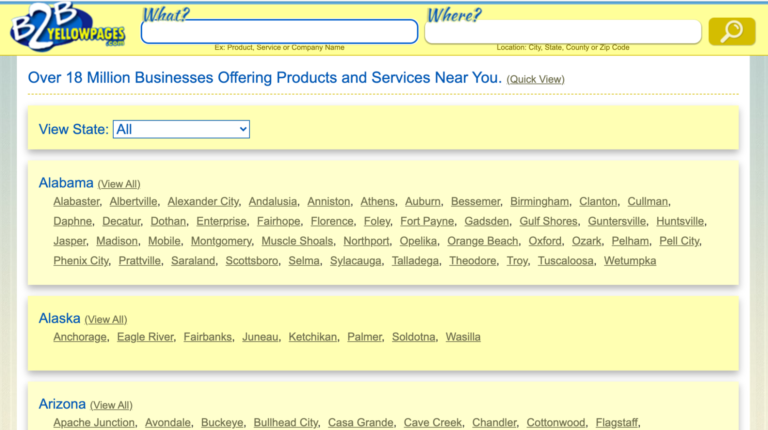 Screenshot from B2B Yellowpages, January 2022
Screenshot from B2B Yellowpages, January 2022This site looks like it never left the 1990s, but it’s still a viable web directory of over 18 million businesses.
The web directory receives around 500,000 to 600,000 visits per month.
17. Nextdoor
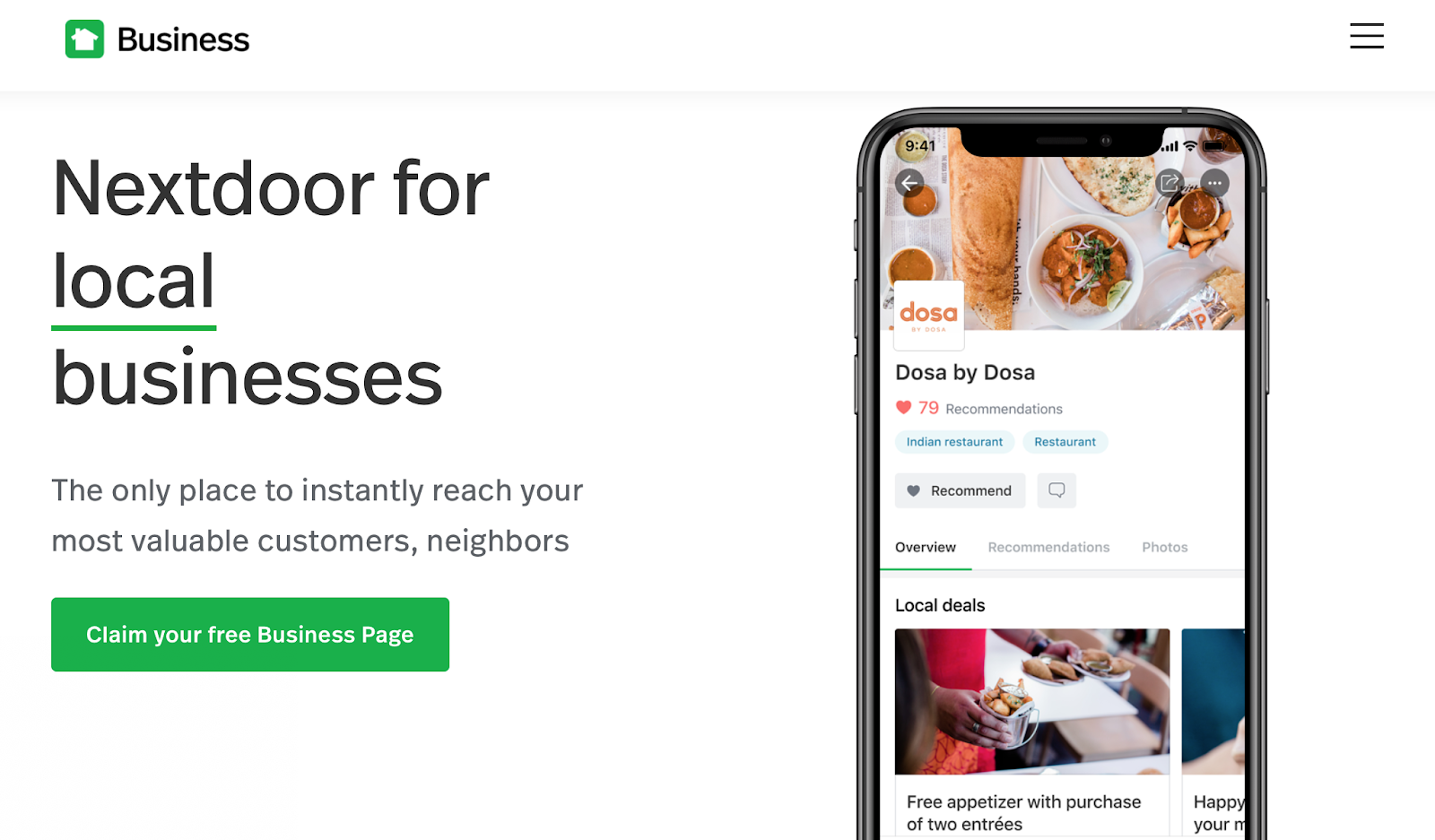 Screenshot from Nextdoor, January 2022
Screenshot from Nextdoor, January 2022In just the past few years, Nextdoor has developed from your friendly neighborhood website into an essential business directory.
Nextdoor has a highly engaged user base, with over 54 million business recommendations on the site.
Once you claim your free business listing, you can market to those users with one of Nextdoor’s advertising options or with Business Posts, which are completely free.
These look and feel very similar to Google Business Posts.
But, they come with one major benefit that’s not available with a Google Business Profile; once posted, these appear instantly in the feed of everyone located within 2 miles of your business.
Did we mention Nextdoor is in the top 200 websites in the U.S., with over 150 million monthly visitors?
In the iconic words of Larry David, that’s pretty, pretty, pretty good.
18. eLocal
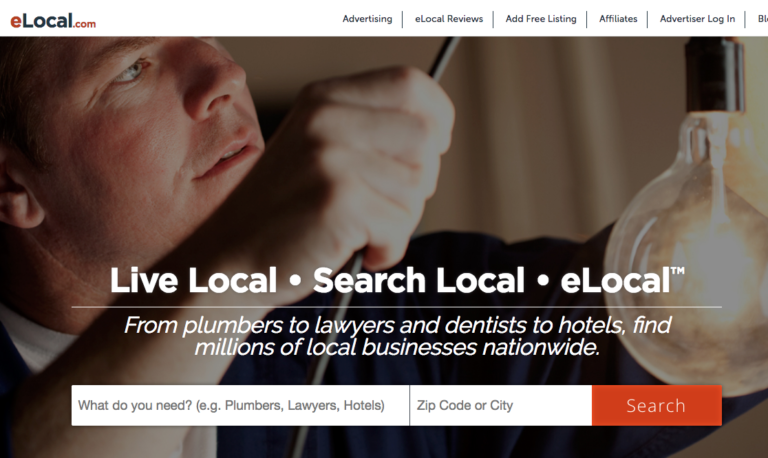 Screenshot from eLocal, January 2022
Screenshot from eLocal, January 2022eLocal is a local business directory that’s been around since 2007.
Between 120,000 and 160,000 monthly visitors use eLocal to find businesses, doctors, contractors, and more.
19. DexKnows
 Screenshot from DexKnows, January 2022
Screenshot from DexKnows, January 2022DexKnows is another local business directory, used by around 100,000 monthly visitors looking for businesses and sole practitioners in their area.
20. Alignable
 Screenshot from Alignable, January 2022
Screenshot from Alignable, January 2022Alignable is a small business referral network first, and a web directory second.
It’s designed to help local business owners connect, collaborate, and refer business to each other.
The site has racked up over 7 million members in less than ten years of operation, and receives over 3.3 million monthly visits.
Alignable can be a valuable site for generating new business through referrals, partnerships, and more.
21. Local.com
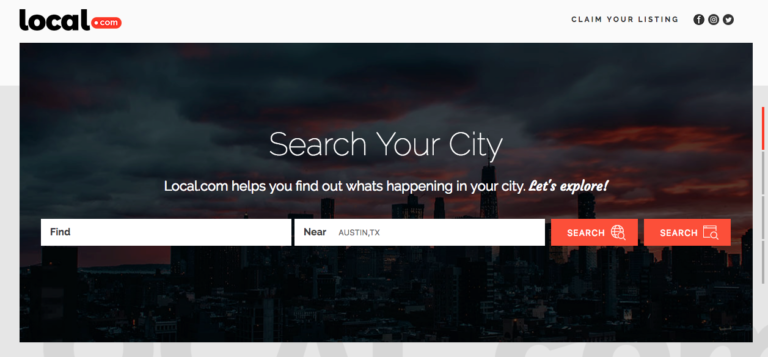 Screenshot from Local.com, January 2022
Screenshot from Local.com, January 2022Local.com lists over 100,000 local businesses with websites and contact information.
The site receives over 2 million monthly visitors.
What Else?
Beyond the directories listed above, there may be additional niche directories with high traffic that are pertinent to your industry, like Avvo for attorneys, Thumbtack for local contractors, or Porch for home improvement professionals.
You can find an excellent list of these, helpfully organized by domain authority, on BrightLocal.com.
There are also services online, notably Moz Local and Yext, that will create, update, and otherwise maintain your local citations across dozens of online directories.
A listing on many of these directories will simply be a citation for citation’s sake, but these services will include the big names like Yahoo, Yelp, and others on our list.
Working with one of these services can significantly speed up the process of getting your website added (and take the work off your plate), which is why they aren’t free.
Depending on how many websites you manage, however, they can be worth it.
Final Thoughts On Web Directories
As you can see, there are still directories that provide value. If a directory receives traffic from your target audience, is relevant to your website, and maintains quality listings, then it’s a good candidate for your backlink profile.
Local businesses may also find relevant directories on the websites for local newspapers, magazines, and business websites. If it’s highly relevant to your website and receives traffic from your community, it’s a good candidate.
Look at the page where your website would be listed and decide if you’re happy to be alongside the other websites on the page.
If you follow these tips, you’ll only choose the most valuable directories for your business.
More resources:
Featured Image: Maxx-Studio/Shutterstock
